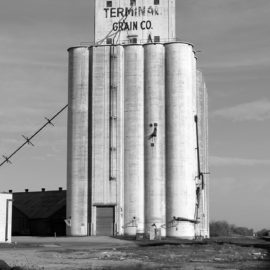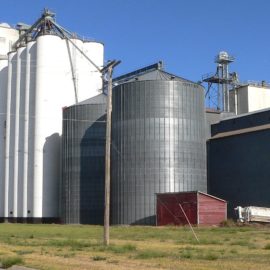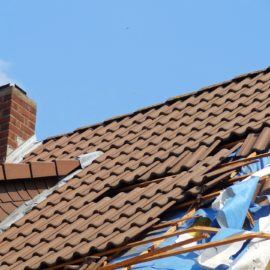
We want to expand grain shipments so much that contracts are being signd even when the grain facility has law suits against it.
Amid a push to increase the region’s grain exporting capacity, the Port of South Louisiana has endorsed a tax payment agreement with the company behind a planned grain elevator in St. John the Baptist Parish. The deal intends to move construction forward on the $500 million facility, despite a pending lawsuit aimed at blocking the structure’s development. The port and the St. John Parish Sheriff’s Office on April 11 signed a cooperative endeavor agreement with Greenfield Louisiana, the subsidiary of Denver-based Greenfield Holdings that is developing the facility. That was about two weeks before a state district judge ruled a lawsuit filed by a St. John nonprofit, the Descendants Project, could move forward.
nola.com
Greenfield would get a 30 year lease with no taxes but rather set payments to the parish.
The cooperative endeavor agreement grants Greenfield Louisiana a 30-year lease on the grain elevator’s proposed site, according to a copy of the deal that the Port of South Louisiana provided to The Advocate | The Times-Picayune. It exempts Greenfield Louisiana from paying property taxes, but it requires the developer to make scheduled payments in lieu of taxes, or PILOTs. Greenfield Louisiana LLC must pay $4 million in 2022 and $2 million per year for the remainder of the lease. The company will also pay an “administration fee” of $300,000 per year for the lease’s first five years and $200,000 per year after that. Paul Matthews, the port’s CEO, revealed the agreement during a Thursday webinar to discuss the need to invest in Mississippi River basin infrastructure projects to expediate grain shipments. The Port of South Louisiana is the world’s largest exporter of grain.
The war in Ukraine is, of course the reason for this facility even if the initial request did not mention it.
In a joint webinar with the American Soybean Association, the Mississippi River Cities and Towns Initiative, and the Soy Transportation Coalition, Matthews touted the grain elevator as a critical project to boost export capacity for a global food supply chain that has been hamstrung by Russia’s war in Ukraine. Should it come to fruition, the St. John grain elevator would be the first such structure built in Louisiana in decades, according to Matthews. It is expected to move more than 11 million metric tons of grain annually. Matthews said Greenfield Louisiana is “ready to go for construction,” but the Army Corps of Engineers has yet to permit the project. He said the complex is slated to come online by 2025, barring any interruptions, and will create 200 permanent jobs with an average salary of $70,000, as well as 500 construction jobs. “It will really help a community that has been losing jobs in a great way,” Matthews said during the webinar.
Of course this facility is being built in a minority housing area but this time they are fighting back.
But some St. John residents have pushed back against the grain elevator, citing potential health and safety risks from the facility’s estimated emissions and its potential to disturb a nearby historic plantation and possible slave burial sites. Sisters Jo and Joy Banner — who run the Descendants Project — filed a lawsuit in November to block the grain elevator from being built at a site near Wallace, a small, predominantly Black community on the west bank of the Mississippi River in St. John Parish. Greenfield Louisiana has said the facility will be one of the cleanest in North America and that surveys have not revealed any slave burial grounds on the land, despite its proximity to Whitney Plantation. In a statement, Matthews said there should be “minimal environmental impacts” from the facility’s construction.
A judge ruled against industry when permission for the group to continue with their fight was granted.
Greenfield Louisiana and St. John officials tried to have the lawsuit dismissed, but a state district judge on April 28 ruled the nonprofit had the legal grounds to proceed with its case. Greenfield has said it will appeal the decision. The Descendants Project on Thursday issued a news release saying it also would file a temporary restraining order request to halt any “ground-penetrating activities” at the site. In an interview Thursday, Jo Banner said she and her sister were “absolutely floored” when they heard about the cooperative endeavor agreement. “I think it’s an absolute travesty, knowing that the port … is moving forward,” she said. “The commissioners who are on that port need to be called out.” Banner also said the Port of South Louisiana’s Board of Commissioners held a meeting April 6 to discuss the cooperative endeavor agreement. She called the meeting “totally illegal” because it was not properly announced and did not offer a public comment period. “We’ve been watching this for months,” she said, “and finally they did it.” Port officials disagreed, saying the meeting was “advertised and held in accordance with the law.”
I am sure the port is trying to cement the need for the facility so that there is no option other than to build it.



